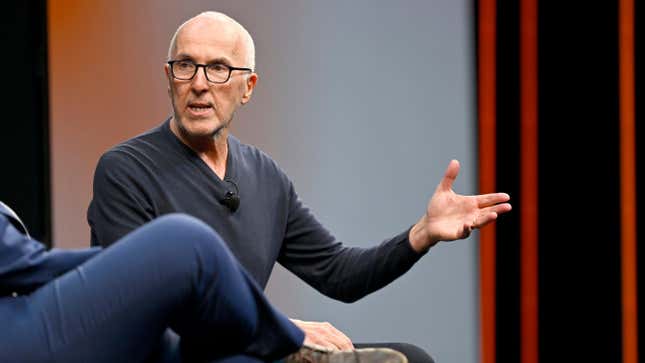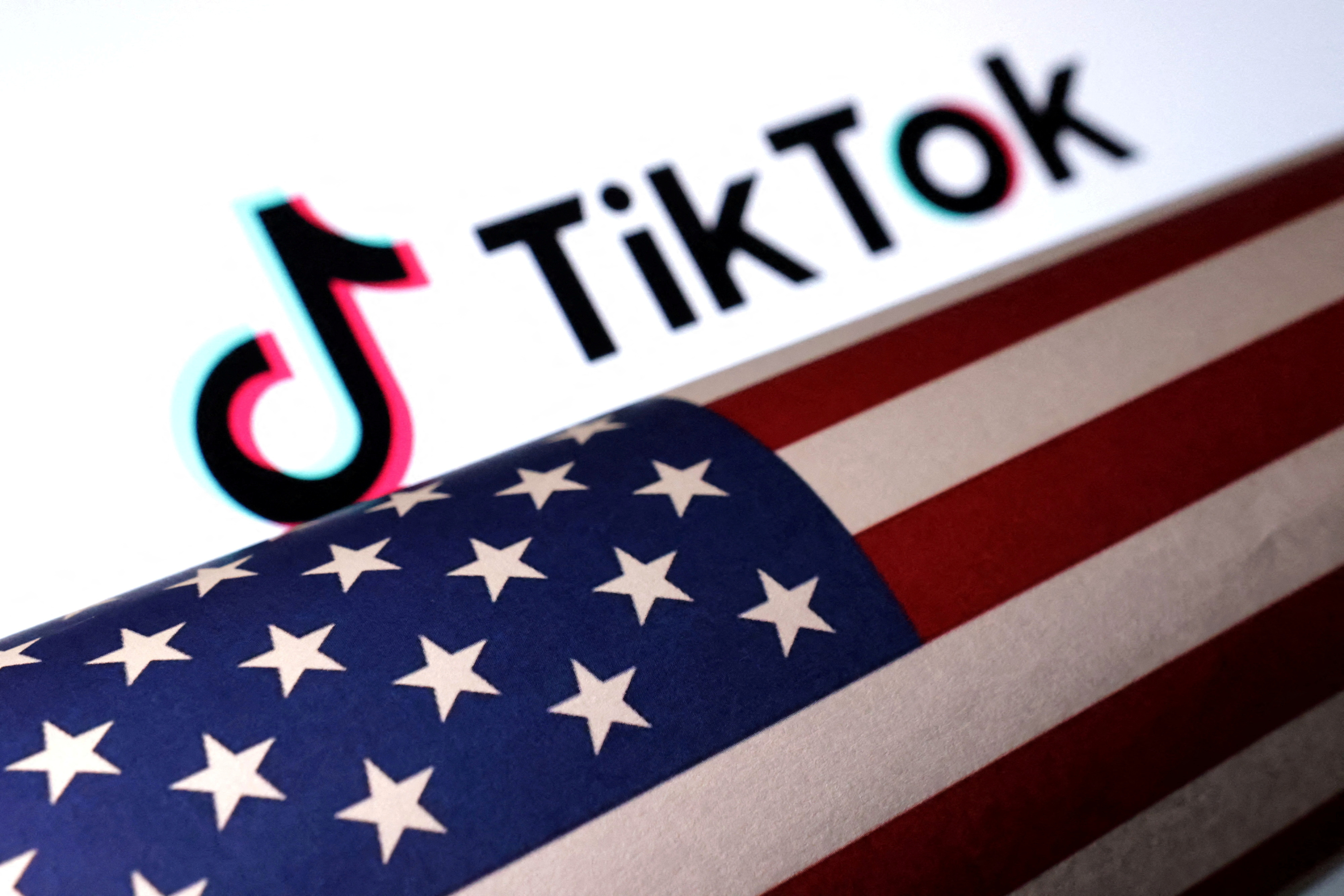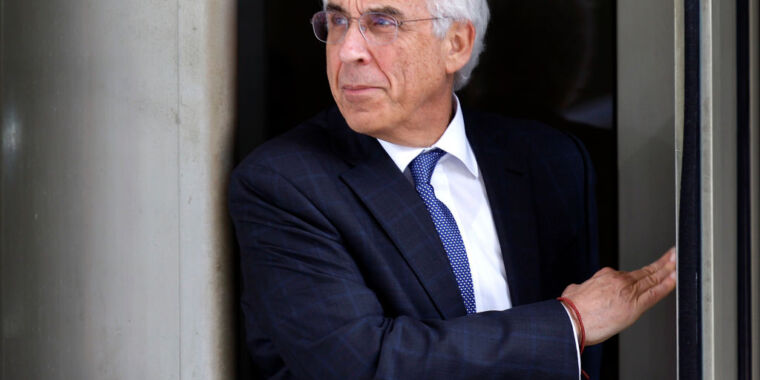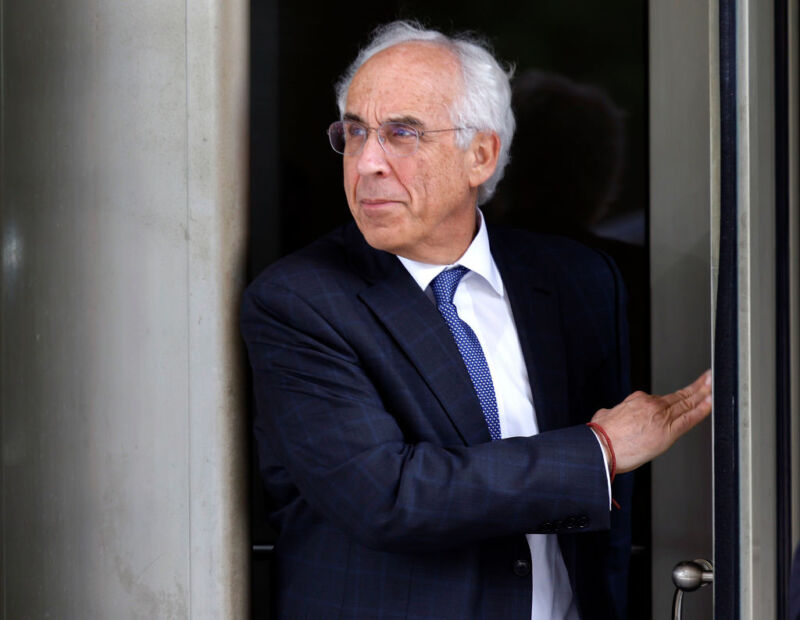why won't you people address the censorship powers the government is seeking to grant itself? can can have a trade embargo with china or a data collection policy that addresses all concerns but no you guys are cheering for censorship instead.Facts, nikkas can't admit this shyt is bad for your brain and will deny that they're addicted
shyt, I like porn but I know that shyt is bad for you
You are using an out of date browser. It may not display this or other websites correctly.
You should upgrade or use an alternative browser.
You should upgrade or use an alternative browser.
The TikTok Bill Could Get a Lot of Apps Banned
- Thread starter bnew
- Start date
-
- Tags
- ban censorship tiktok
More options
Who Replied?Unpopular opinion: We do need censorship to an extentwhy won't you people address the censorship powers the government is seeking to grant itself? can can have a trade embargo with china or a data collection policy that addresses all concerns but no you guys are cheering for censorship instead.
Last edited:
Unpopular opinion: We do need censorship to an extent

that "extent" is increasingly eroded everywhere no matter the initial objective or reasoning. there are more countries in the world that employs the internet censorship you advocate for than there aren't..

DJ Paul's Arm
Veteran
nonsense, the people who use it deem it valuable.
The people who use it are unhinged.
Missed everything outside the op
But I think if they go by active users to determine how large a platform is, a lot of common/popular apps can get the axe. I'm pretty sure they'll include certain specifications at some point tho
But I think if they go by active users to determine how large a platform is, a lot of common/popular apps can get the axe. I'm pretty sure they'll include certain specifications at some point tho
The people who use it are unhinged.
what makes them more unhinged than the people on twitter, youtube or facebook?
DJ Paul's Arm
Veteran
what makes them more unhinged than the people on twitter, youtube or facebook?
All social media is filled with unhinged people. Now the trolls using AI to fukk with the gullable is the final form of the social media shyt show.

Billionaire Real Estate Mogul Hopes to Turn TikTok Into His Utopian Internet Dream
Frank McCourt says he wants to buy TikTok to make a "new and better version of the internet."
Billionaire Real Estate Mogul Hopes to Turn TikTok Into His Utopian Internet Dream
Frank McCourt says he wants to buy TikTok to make a "new and better version of the internet."
ByMatt Novak
Published Wednesday 12:25PM
Comments (26)

Frank McCourt speaks onstage during Unfinished Live at The Shed on September 22, 2022, in New York City. Photo: Roy Rochlin/Getty Images for Unfinished Live (Getty Images)
Frank McCourt, the billionaire real estate mogul and former owner of the Los Angeles Dodgers, is currently working on a bid to buy TikTok, according to reports from several reputable news outlets. And while it remains to be seen whether TikTok’s parent company ByteDance will agree to a sale to anyone, McCourt’s background in utopian tech advocacy makes him an interesting figure to enter the race.
The U.S. Congress passed legislation in March that will force TikTok to be sold or face a total ban in the U.S., ostensibly over national security concerns. ByteDance is based in China and bipartisan hawks of the New Cold War insist Beijing is capable of monitoring and manipulating data on TikTok, supposedly brainwashing the 170 million Americans who currently use the app.
And that’s where potential buyers now come in, including investor groups led by people like former Treasury Secretary Steve Mnuchin, reality show host Kevin O’Leary, and now Frank McCourt.
“We want all the capital to be values-aligned [around] a new and better version of the internet, where individuals are respected and they own and control their identity and their data,” McCourt told Semafor.
McCourt’s rather utopian vision of the internet isn’t just the ramblings of a billionaire kook. He created an initiative in 2021 called Project Liberty that advocates for open internet protocols and has the backing of some big names in the world of technology. Tim Berners-Lee, the creator of the web, is quoted in Semafor’s latest article praising McCourt, saying that he will, “embrace the critical values of privacy, data sovereignty, and user mental health.”
McCourt has also written a book, titled Our Biggest Fight: Reclaiming Liberty, Humanity, and Dignity in the Digital Age, released in March, laying out his case for humanizing the internet. It starts, McCourt insists, by reimagining the infrastructure of the web with new open protocols.
But the big question among all of this: Will ByteDance even sell TikTok to American investors? At this point, it seems unlikely. TikTok filed a lawsuit last week to block the legislation on First Amendment grounds and the tech company makes a pretty compelling case. With roughly half the U.S. population currently using the app, it would indeed be chilling to the speech of millions if TikTok was suddenly taken away.
But as we all know, laws are fake and any court in the country can rationalize the most hypocritical ruling as being a matter of principle. The U.S. spent the past two decades shaming other countries for banning American websites when other nations said they had national security concerns. Now it’s our turn to ban apps we don’t like, simply because we got outplayed at our own game. Whether guys like McCourt can snap up TikTok amid all this confusion remains to be seen.
Richard Glidewell
Yall done tore all the bottom of ya shoes w/me!!!
A billionaire ain't looking to spend big bucks for the welfare of the people......... ain't no way!! This would end up being some black mirror m night shamalan type twisty double cross........
Billionaire Real Estate Mogul Hopes to Turn TikTok Into His Utopian Internet Dream
Frank McCourt says he wants to buy TikTok to make a "new and better version of the internet."gizmodo.com
Billionaire Real Estate Mogul Hopes to Turn TikTok Into His Utopian Internet Dream
Frank McCourt says he wants to buy TikTok to make a "new and better version of the internet."
By
Matt Novak
Published Wednesday 12:25PM
Comments (26)

Frank McCourt speaks onstage during Unfinished Live at The Shed on September 22, 2022, in New York City. Photo: Roy Rochlin/Getty Images for Unfinished Live (Getty Images)
Frank McCourt, the billionaire real estate mogul and former owner of the Los Angeles Dodgers, is currently working on a bid to buy TikTok, according to reports from several reputable news outlets. And while it remains to be seen whether TikTok’s parent company ByteDance will agree to a sale to anyone, McCourt’s background in utopian tech advocacy makes him an interesting figure to enter the race.
The U.S. Congress passed legislation in March that will force TikTok to be sold or face a total ban in the U.S., ostensibly over national security concerns. ByteDance is based in China and bipartisan hawks of the New Cold War insist Beijing is capable of monitoring and manipulating data on TikTok, supposedly brainwashing the 170 million Americans who currently use the app.
And that’s where potential buyers now come in, including investor groups led by people like former Treasury Secretary Steve Mnuchin, reality show host Kevin O’Leary, and now Frank McCourt.
“We want all the capital to be values-aligned [around] a new and better version of the internet, where individuals are respected and they own and control their identity and their data,” McCourt told Semafor.
McCourt’s rather utopian vision of the internet isn’t just the ramblings of a billionaire kook. He created an initiative in 2021 called Project Liberty that advocates for open internet protocols and has the backing of some big names in the world of technology. Tim Berners-Lee, the creator of the web, is quoted in Semafor’s latest article praising McCourt, saying that he will, “embrace the critical values of privacy, data sovereignty, and user mental health.”
McCourt has also written a book, titled Our Biggest Fight: Reclaiming Liberty, Humanity, and Dignity in the Digital Age, released in March, laying out his case for humanizing the internet. It starts, McCourt insists, by reimagining the infrastructure of the web with new open protocols.
But the big question among all of this: Will ByteDance even sell TikTok to American investors? At this point, it seems unlikely. TikTok filed a lawsuit last week to block the legislation on First Amendment grounds and the tech company makes a pretty compelling case. With roughly half the U.S. population currently using the app, it would indeed be chilling to the speech of millions if TikTok was suddenly taken away.
But as we all know, laws are fake and any court in the country can rationalize the most hypocritical ruling as being a matter of principle. The U.S. spent the past two decades shaming other countries for banning American websites when other nations said they had national security concerns. Now it’s our turn to ban apps we don’t like, simply because we got outplayed at our own game. Whether guys like McCourt can snap up TikTok amid all this confusion remains to be seen.

A billionaire ain't looking to spend big bucks for the welfare of the people......... ain't no way!! This would end up being some black mirror m night shamalan type twisty double cross........
seriously, why not just get a team and build a site, it's way cheaper.

Trump, Who Famously Tried to Ban TikTok, Joins TikTok
Donald Trump once signed an executive order trying to ban TikTok in the U.S. Now he has joined the platform.
Trump, Who Famously Tried to Ban TikTok, Joins TikTok
Donald Trump has already amassed nearly two million followers on the platform he once attempted to block in the U.S.BY PETER WADE
JUNE 2, 2024

(Photo Illustration by Jaap Arriens/NurPhoto via Getty Images) NURPHOTO VIA GETTY IMAGES
Donald Trump is officially on TikTok, an app he once tried to ban. The former president joined the China-based social media platform on Saturday night, posting a video of himself at an Ultimate Fighting Championship fight in New Jersey.
“The president is now on TikTok,” UFC CEO Dana White said into the camera while standing next to the candidate in the first video shared on Trump’s account.
“It’s my honor,” Trump said. With Kid Rock’s “American Badass” playing in the background, clips in the video show Trump in the UFC arena waving to fans as they cheered. Then, Trump said, “That was a good walk on, right?”
By noon on Sunday, the video had already reached more than 33 million views, and Trump gained just shy of two million followers. According to Trump campaign spokesperson Steven Cheung, the campaign will leave “no front undefended and this represents the continued outreach to a younger audience consuming pro-Trump and anti-Biden content,” he said in a statement.
While he may be embracing TikTok now, as president, Trump signed an executive order in 2020 that said “the spread in the United States of mobile applications developed and owned” by Chinese companies presented a threat to national security. TikTok sued and successfully blocked the order.
In April, Congress passed a bill Biden later signed that could effectively bar the app in the U.S. unless its owner, ByteDance, sells TikTok to an American company. The bill came to fruition out of fears that ByteDance may be trying to influence U.S. elections and could expose Americans’ data to China’s government. TikTok has filed suit to combat the legislation, claiming it violates the First Amendment.
“Congress has taken the unprecedented step of expressly singling out and banning TikTok: a vibrant online forum for protected speech and expression used by 170 million Americans to create, share, and view videos over the Internet,” the company wrote in the suit.
The federal government, including the F.B.I. and the Federal Communications Commission, has cautioned that Americans’ data held by ByteDance — including browsing habits, location history, and biometric information — could be shared with the Chinese government. TikTok has said it would not allow this to happen.
Even as recently as this past March, Trump has said that he believes TikTok presents a risk to national security. But, he has changed his mind about banning the app, saying it would only help Facebook, which he blames in part for his 2020 election loss.
“Frankly, there are a lot of people on TikTok that love it. There are a lot of young kids on TikTok who will go crazy without it,” Trump said on CNBC’s Squawk Box. “There’s a lot of good and there’s a lot of bad with TikTok. But the thing I don’t like is that without TikTok you’re going to make Facebook bigger, and I consider Facebook to be an enemy of the people, along with a lot of the media.”
Despite the president signing legislation to ban the app, Biden’s campaign is on TikTok. But the campaign has only 336,000 followers — far short of Trump’s personal account earning nearly two million and growing. Unlike Trump, Biden does not have a personal account on TikTok.
This article has been updated.
TikTok says US ban is inevitable without a court order blocking law
By David ShepardsonJune 20, 20243:57 PM EDTUpdated 2 hours ago

U.S. flag is placed on a TikTok logo in this illustration taken March 20, 2024. REUTERS/Dado Ruvic/Illustration/File Photo Purchase Licensing Rights
, opens new tab
- Summary
- Companies
- ByteDance argues divestiture is not possible technologically, commercially or legally
- TikTok claims the law violates Americans' free speech rights
- TikTok has spent over $2 billion on efforts to protect U.S. user data
WASHINGTON, June 20 (Reuters) - TikTok and Chinese parent ByteDance on Thursday urged a U.S. court to strike down a law they say will ban the popular short video app in the United States on Jan. 19, saying the U.S. government refused to engage in any serious settlement talks after 2022.
Legislation signed in April by President Joe Biden gives ByteDance until Jan. 19 next year to divest TikTok's U.S. assets or face a ban on the app used by 170 million Americans. ByteDance says a divestiture is "not possible technologically, commercially, or legally."
The U.S. Court of Appeals for the District of Columbia will hold oral arguments on lawsuits filed by TikTok and ByteDance along with TikTok users on Sept. 16. TikTok's future in the United States may rest on the outcome of the case which could impact how the U.S. government uses its new authority to clamp down on foreign-owned apps.
"This law is a radical departure from this country’s tradition of championing an open Internet, and sets a dangerous precedent allowing the political branches to target a disfavored speech platform and force it to sell or be shut down," ByteDance and TikTok argue in asking the court to strike down the law.
Driven by worries among U.S. lawmakers that China could access data on Americans or spy on them with the app, the measure was passed overwhelmingly in Congress just weeks after being introduced.
Lawyers for a group of TikTok users who have sued to prevent the app from being banned said the law would violate their free speech rights. In a filing on Thursday, they argued it is clear there are no imminent national security risks because the law "allows TikTok to continue operating through the rest of this year -- including during an election that the very president who signed the bill says is existential for our democracy."
TikTok says any divestiture or separation - even if technically possible - would take years and it argues that the law runs afoul of Americans' free speech rights.
Further, it says the law unfairly singles out TikTok for punitive treatment and "ignores many applications with substantial operations in China that collect large amounts of U.S. user data, as well as the many U.S. companies that develop software and employ engineers in China."
ByteDance recounted lengthy negotiations between the company and the U.S. government that it says abruptly ended in August 2022. The company also made public a redacted version of a 100-plus page draft national security agreement to protect U.S. TikTok user data and says it has spent more than $2 billion on the effort.
The draft agreement included giving the U.S. government a "kill switch" to suspend TikTok in the United States at the government’s sole discretion if the company did not comply with the agreement and says the U.S. demanded that TikTok's source code be moved out of China.
"This administration has determined that it prefers to try to shut down TikTok in the United States and eliminate a platform of speech for 170 million Americans, rather than continue to work on a practical, feasible, and effective solution to protect U.S. users through an enforceable agreement with the U.S. government," TikTok lawyers wrote the Justice Department in an April 1 email made public on Thursday.
The Justice Department declined to comment on the email but said last month the law "addresses critical national security concerns in a manner that is consistent with the First Amendment and other constitutional limitations." It said it would defend the legislation in court.
In 2020, then-President Donald Trump was blocked by the courts in his bid to ban TikTok and Chinese-owned WeChat, a unit of Tencent (0700.HK)
, opens new tab in the United States.
The White House says it wants to see Chinese-based ownership ended on national security grounds, but not a ban on TikTok. Earlier this month, Trump joined TikTok and has recently raised concerns about a potential ban.
The law prohibits app stores like those of Apple (AAPL.O)
, opens new tab and Alphabet's (GOOGL.O) , opens new tab Google from offering TikTok. It also bars internet hosting services from supporting TikTok unless it is divested by ByteDance.

US can’t ban TikTok for security reasons while ignoring Temu, other apps, TikTok argues
TikTok's survival in the US may depend on an appeals court ruling this December.
"Something else is at play" —
US can’t ban TikTok for security reasons while ignoring Temu, other apps, TikTok argues
TikTok's survival in the US may depend on an appeals court ruling this December.
Ashley Belanger - 9/16/2024, 5:23 PM

Enlarge / Andrew J. Pincus, attorney for TikTok and ByteDance, leaves the E. Barrett Prettyman US Court House with members of his legal team as the US Court of Appeals hears oral arguments in the case TikTok Inc. v. Merrick Garland on September 16 in Washington, DC.
Kevin Dietsch / Staff | Getty Images News
reader comments
136The fight to keep TikTok operating unchanged in the US reached an appeals court Monday, where TikTok and US-based creators teamed up to defend one of the world's most popular apps from a potential US ban.
TikTok lawyer Andrew Pincus kicked things off by warning a three-judge panel that a law targeting foreign adversaries that requires TikTok to divest from its allegedly China-controlled owner, ByteDance, is "unprecedented" and could have "staggering" effects on "the speech of 170 million Americans."
Pincus argued that the US government was "for the first time in history" attempting to ban speech by a specific US speaker—namely, TikTok US, the US-based entity that allegedly curates the content that Americans see on the app.
The government justified the law by claiming that TikTok may in the future pose a national security risk because updates to the app's source code occur in China. Essentially, the US is concerned that TikTok collecting data in the US makes it possible for the Chinese government to both spy on Americans and influence Americans by manipulating TikTok content.
But Pincus argued that there's no evidence of that, only the FBI warning "about the potential that the Chinese Communist Party could use TikTok to threaten US homeland security, censor dissidents, and spread its malign influence on US soil." And because the law carves out China-owned and controlled e-commerce apps like Temu and Shein—which a US commission deemed a possible danger and allegedly process even more sensitive data than TikTok—the national security justification for targeting TikTok is seemingly so under-inclusive as to be fatal to the government's argument, Pincus argued.
Jeffrey Fisher, a lawyer for TikTok creators, agreed, warning the panel that "what the Supreme Court tells us when it comes to under-inclusive arguments is [that they're] often a signal that something else is at play."
Daniel Tenny, a lawyer representing the US government, defended Congress' motivations for passing the law, explaining that the data TikTok collects is "extremely valuable to a foreign adversary trying to compromise the security" of the US. He further argued that a foreign adversary controlling "what content is shown to Americans" is just as problematic.
Rather than targeting Americans' expression on the app, Tenny argued that because ByteDance controls TikTok's source code, the speech on TikTok is not American speech but "expression by Chinese engineers in China." This is the "core point" that the US hopes the appeals court will embrace, that as long as ByteDance oversees TikTok's source code, the US will have justified concerns about TikTok data security and content manipulation. The only solution, the US government argues, is divestment.
TikTok has long argued that divestment isn't an option and that the law will force a ban. Pincus told the court that the "critical issue" with the US government's case is that the US does not have any evidence that TikTok US is under Chinese control. Because the US is only concerned about some "future Chinese control," the burden that the law places on speech must meet the highest standard of constitutional scrutiny. Any finding otherwise, Pincus warned the court, risked turning the First Amendment "on its head," potentially allowing the government to point to foreign ownership to justify regulating US speech on any platform.
But as the panel explained, the US government had tried for two years to negotiate with ByteDance and find through Project Texas a way to maintain TikTok in the US while avoiding national security concerns. Because every attempt to find a suitable national security arrangement has seemingly failed, Congress was potentially justified in passing the law, the panel suggested, especially if the court rules that the law is really just trying to address foreign ownership—not regulate content. And even though the law currently only targets TikTok directly, the government could argue that's seemingly because TikTok is so far the only foreign adversary-controlled company flagged as a potential national security risk, the panel suggested.
TikTok insisted that divestment is not the answer and that Congress has made no effort to find a better solution. Pincus argued that the US did not consider less restrictive means for achieving the law's objectives without burdening speech on TikTok, such as a disclosure mechanism that could prevent covert influence on the app by a foreign adversary.
But US circuit judge Neomi Rao pushed back on this, suggesting that disclosure maybe isn't "always" the only appropriate mechanism to block propaganda in the US—especially when the US government has no way to quickly assess constantly updated TikTok source code developed in China. Pincus had confirmed that any covert content manipulation uncovered on the app would only be discovered after users were exposed.
"They say it would take three years to just review the existing code," Rao said. "How are you supposed to have disclosure in that circumstance?"
"I think disclosure has been the historic answer for covert content manipulation," Pincus told the court, branding the current law as "unusual" for targeting TikTok and asking the court to overturn the alleged ban.
The government has given ByteDance until mid-January to sell TikTok, or else the app risks being banned in the US. The appeals court is expected to rule by early December.
TikTok is not like other apps, creators argued
The court pushed back on Pincus' characterization of the law as unconstitutionally targeting TikTok US, suggesting that no speech would seemingly be burdened if TikTok continued operating after divestiture from Chinese-controlled ownership. Theoretically, users could continue using the app as they had before, the panel suggested.
In response, Pincus argued that divestiture is impossible.
"This isn't just about divestiture," Pincus told the court. "This is about a ban."
But even if divestiture were somehow possible, Pincus argued that requiring it would still burden speech because altering TikTok's algorithm would make the content different for users.
Fisher similarly argued that there is no interchangeable platform for TikTok users and that users voluntarily choose to share data with TikTok. He cited one client, a TikTok user with millions of followers, with fewer than 100 followers on YouTube. That user quickly learned that not only are the audiences on other platforms vastly different, Fisher argued, but so are the creator tools, which means "the nature of the speech is different" on TikTok.
Defending Americans choosing TikTok above other platforms, Fisher said that Americans have a "fundamental interest" in working with the publisher or editor of their choice, which Congress is allegedly trying to take away. Because the law is allegedly motivated to suppress expression, Fisher said that there is no way for the US government to argue around the First Amendment successfully. Law professors have previously suggested that TikTok's First Amendment case is strong.
"American speakers are silenced" or "consistently affected by this law, so you can't get out of the First Amendment problem," Fisher argued. "Even in a world where you're dealing with totally unprotected speech," if the government is "choosing, selecting, and suppressing some speech based on viewpoint, but not another," the law requires strict constitutional scrutiny, Fisher argued, which the law allegedly cannot survive.
Tenny responded by saying that it's still unclear what ByteDance would actually do if the law is enforced. ByteDance could "have a change of heart," Tenny suggested, and sell off TikTok US. He also argued that if ByteDance was shut down due to some other violation, like tax fraud, TikTok creators would not be able to raise a First Amendment challenge.
Judges ask: What about in war times?
It's unclear which side the panel found more persuasive. Throughout the hearing, the panel raised several hypotheticals to weigh both sides' arguments, perhaps most notably pondering if the law's provisions would potentially be permissible in war times.
Pincus conceded that perhaps if China and the US were at war, the US might be able to justify a law burdening speech, but the same issues with the law's under-inclusivity would arise in that heightened scenario. Fisher agreed that he could "imagine" that the law could escape strict constitutional scrutiny in "the heat of war" but reminded the panel that "we're not at war."
"The government still has to come in and explain in reasonable terms why it singled out one particular collector of data and excluded everybody else," Fisher suggested.
US appeals court upholds TikTok law forcing its sale
By David Shepardson and Mike Scarcella
December 6, 202412:28 PM ESTUpdated 10 min ago
A TikTok logo is displayed on a smartphone in this illustration taken January 6, 2020. REUTERS/Dado Ruvic/File Photo Purchase Licensing Rights
, opens new tab
- Summary
- Companies
- Court decision likely to be appealed to the Supreme Court
- DOJ says TikTok is a threat to national security and should be sold
- Trump has vowed to prevent TikTok from being barred
WASHINGTON, Dec 6 (Reuters) - A U.S. federal appeals court on Friday upheld a law requiring Chinese-based ByteDance to divest its popular short video app TikTok in the United States by early next year or face a ban.
The decision is a win for the Justice Department and opponents of the Chinese-owned app and a devastating blow to ByteDance. The ruling now increases the possibility of an unprecedented ban in just six weeks on a social media app used by 170 million Americans.
The ruling is expected to be appealed to the Supreme Court.
Free speech advocates immediately criticized the decision. The American Civil Liberties Union said it sets a "flawed and dangerous precedent."
"Banning TikTok blatantly violates the First Amendment rights of millions of Americans who use this app to express themselves and communicate with people around the world,” said Patrick Toomey, deputy director of the ACLU's National Security Project.
But the appeals court said the law “was the culmination of extensive, bipartisan action by the Congress and by successive presidents. It was carefully crafted to deal only with control by a foreign adversary, and it was part of a broader effort to counter a well-substantiated national security threat posed by the PRC (People's Republic of China)."
U.S. appeals court Judges Sri Srinivasan, Neomi Rao and Douglas Ginsburg considered the legal challenges brought by TikTok and users against the law that gives ByteDance until Jan. 19 to sell or divest TikTok's U.S. assets or face a ban.
The decision -- unless the Supreme Court reverses it -- puts TikTok's fate in the hands of first President JoeBiden on whether to grant a 90-day extension of the Jan. 19 deadline to force a sale and then President-elect Donald Trump, who takes office on Jan. 20. But it's not clear whether ByteDance could meet the heavy burden to show it had made significant progress toward a divestiture needed to trigger the extension.
Trump, who unsuccessfully tried to ban TikTok during his first term in 2020, said before the November presidential election he would not allow the TikTok ban.
TikTok said it expected the Supreme Court would reverse the appeals court decision on First Amendment grounds.
"The Supreme Court has an established historical record of protecting Americans' right to free speech, and we expect they will do just that on this important constitutional issue," TikTok said in a statement, adding the law will result "in outright censorship of the American people."
The Justice Department did not have an immediate comment on the decision.
The decision upholds the law giving the U.S. government sweeping powers to ban other foreign-owned apps that could raise concerns about collection of Americans' data. In 2020, Trump also tried to ban Tencent-owned WeChat, but was blocked by the courts.
Shares of Meta Platforms (META.O)
, opens new tab, which competes against TikTok in online ads, hit an intraday record high following the ruling, last up over 3%. Google parent Alphabet (GOOGL.O)
, opens new tab, whose YouTube video platform also competes with TikTok, was up over 1% following the ruling.
TIKTOK BAN LOOMS
The court acknowledged its decision would lead to TikTok's ban on Jan. 19 without an extension from Biden.
"Consequently, TikTok's millions of users will need to find alternative media of communication," the court said, which was because of China's "hybrid commercial threat to U.S. national security, not to the U.S. Government, which engaged with TikTok through a multi-year process in an effort to find an alternative solution."
The opinion was written by Ginsburg, an appointee of President Ronald Reagan, and joined by Rao, who was named to the bench by Trump, and Srinivasan, an appointee of President Barack Obama.
The Justice Department says under Chinese ownership, TikTok poses a serious national security threat because of its access to vast personal data of Americans, asserting China can covertly manipulate information that Americans consume via TikTok.
U.S. officials have also warned TikTok's management is beholden to the Chinese government, which could compel the company to share the data of its American users.
TikTok has denied it has or ever would share U.S. user data, accusing American lawmakers in the lawsuit of advancing "speculative" concerns.
TikTok and ByteDance argue the law is unconstitutional and violates Americans' free speech rights. They call it "a radical departure from this country's tradition of championing an open Internet."
ByteDance, backed by Sequoia Capital, Susquehanna International Group, KKR & Co (KKR.N)
, opens new tab, and General Atlantic, among others, was valued at $268 billion in December 2023 when it offered to buy back around $5 billion worth of shares from investors, Reuters reported then.
The law prohibits app stores like Apple (AAPL.O)
, opens new tab and Alphabet's (GOOGL.O)
, opens new tab Google from offering TikTok and bars internet hosting services from supporting TikTok unless ByteDance divests TikTok by the deadline.
Apple and Google did not immediately respond to requests for comment.
In a concurring opinion, Srinivasan acknowledged the decision will have major impacts, noting "170 million Americans use TikTok to create and view all sorts of free expression and engage with one another and the world. And yet, in part precisely because of the platform’s expansive reach, Congress and multiple Presidents determined that divesting it from (China's) control is essential to protect our national security."
He added that "Because the record reflects that Congress's decision was considered, consistent with longstanding regulatory practice, and devoid of an institutional aim to suppress particular messages or ideas, we are not in a position to set it aside."
